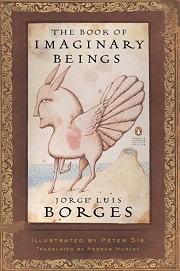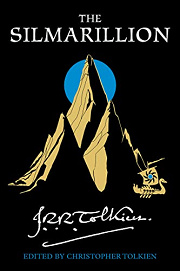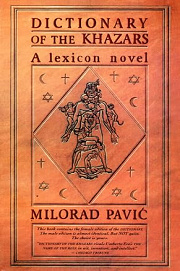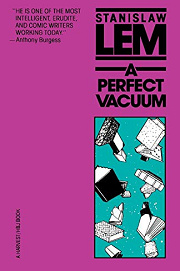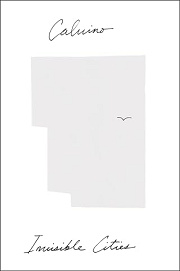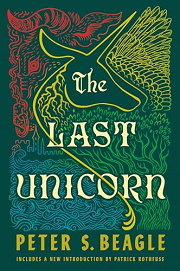Share your thoughts in a quick Shelf Talk!
The Book of Imaginary Beings by Jorge Luis Borges
From dragons to djinn, griffins to golems, one of literature’s great minds catalogs the creatures that stalk our dreams. Witty, erudite, and endlessly curious, these entries blur the line between myth and memory. The Book of Imaginary Beings is a cabinet of wonders for readers who love the strange, the beautiful, and the uncanny.
Have you read this book? Share what you liked (or didn’t), and we’ll use your answers to recommend your next favorite read!
Love The Book of Imaginary Beings but not sure what to read next?
These picks are popular with readers who enjoyed this book. Complete a quick Shelf Talk to get recommendations made just for you! Warning: possible spoilers for The Book of Imaginary Beings below.
In The Book of Imaginary Beings, did you enjoy ...
... the sense of deep, ancient myth-cycles behind each creature?
The Silmarillion by J. R. R. Tolkien
If the entries on the Simurgh, the Phoenix, or the Catoblepas thrilled you because they feel like fragments from vast, half-remembered epics, you’ll love how The Silmarillion opens onto full creation myths and lost ages. The Ainulindalë’s world-song, the shadow cast by Ungoliant, and the doom carried by Glaurung give you that same awe of primordial beings shaping history—only here the tapestry is complete, with genealogies, maps, and tragedies like Beren and Lúthien to match the grandeur hinted at in Borges’s bestiary.
... the playful, pseudo-scholarly mosaic of sources and cross-references?
Dictionary of the Khazars by Milorad Pavić
If you enjoyed how Borges layers invented citations and scholarly asides around creatures like the A Bao A Qu or the Zaratan, Dictionary of the Khazars turns that delight into a whole reading experience. Presented as a cross-referenced lexicon with Christian, Islamic, and Jewish versions, it lets you slip between entries and “authorities,” piecing together a mythic history as slyly constructed—and as tantalizingly unreliable—as Borges’s notes and apocrypha.
... the wry, erudite playfulness of faux-academic invention?
A Perfect Vacuum by Stanislaw Lem
If the droll tone of entries like the Squonk (that self-dissolving bundle of pathos) or the knowingly straight-faced cataloging of the Basilisk made you grin, Lem’s A Perfect Vacuum will hit the same sweet spot. It’s a collection of impeccably deadpan “reviews” of nonexistent books—crammed with footnotes, references, and highbrow jokes—mirroring Borges’s mock-scholarly sparkle while constantly surprising you with conceptual punchlines.
... the meditative catalog-as-form that turns entries into philosophical reflections?
Invisible Cities by Italo Calvino
If entries such as the Doppelgänger or the Ouroboros drew you in because each brief sketch opens into a meditation on identity and infinity, Invisible Cities does that with urban visions. Marco Polo’s vignettes—Zaira strung with memory, Eudoxia patterned like a cosmic carpet—echo the way Borges’s beings become lenses for thought; you read one page and end up pondering the architecture of time, language, and desire.
... mythic creatures used as luminous symbols with emotional resonance?
The Last Unicorn by Peter S. Beagle
If the Unicorn, the Minotaur, and the Phoenix in Borges felt potent because they’re more than monsters—each a symbol carrying centuries of meaning—The Last Unicorn gives that symbolism a beating heart. The unicorn’s quest, Schmendrick’s faltering magic, and King Haggard’s hollow longing turn the creature’s purity into a moving parable about wonder and loss, much like how Borges lets a single entry unfold into a larger truth.
Unlock your personalized book recommendations! Just take a quick Shelf Talk for The Book of Imaginary Beings by Jorge Luis Borges. It’s only a few questions and takes less than a minute.
